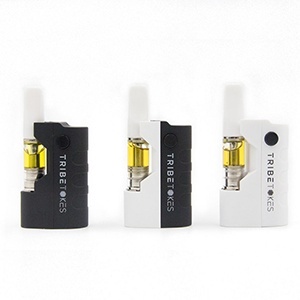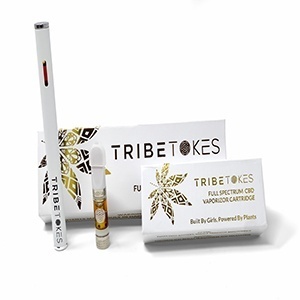Surprise! Spotify Says They Don’t Owe Anything for ‘Mechanicals’
Looks like Spotify has a totally different game plan for dealing with pesky publishers and songwriters.  So you can take your ‘mechanical’ license and…
If you’re just tuning into this imbroglio, then welcome to the juiciest part.
Just this morning, Spotify’s lawyers decided that the ‘mechanical’ publishing license doesn’t pertain to them.  Which means that all of these lawsuits related to mechanical licenses are basically BS (at least from their perspective).
That’s right: Spotify is turning the car around.  That is, despite settling previous mechanical licensing lawsuits for nearly $75 million.  Guess that was Spotify’s tipping point: now, the company is battling back and calling the whole exercise a scam.
And yes, we have it in written court testimony.
Here’s what Spotify just argued in its massive, $365 million-plus lawsuit involving Bluewater Music Services and Bob Gaudio from Frankie Valli and the Four Seasons.  Those lawsuits are also focused on mechanicals, and considered the tip of a legal iceberg that could cross into the billions.
Accordingly, Spotify is turning its handshake into a monstrous middle finger.
(Don’t worry, I’ll translate the legalese afterwards).
“Plaintiff alleges that Spotify “reproduce[s]†and “distribute[s]†Plaintiff’s works, thereby facilely checking the boxes to plead an infringement of the reproduction and distribution rights. But Plaintiff leaves Spotify guessing as to what activity Plaintiff actually believes entails “reproduction†or “distribution.â€
The only activity of Spotify’s that Plaintiff identifies as infringing is its “streaming†of sound recordings embodying Plaintiff’s copyrighted musical compositions.
But “streaming†– by its very definition – cannot infringe upon either the reproduction right under 17 U.S.C. § 106(1) or the distribution right under 17 U.S.C. § 106(3).â€
What this basically says is the following: the ‘mechanical’ publishing license is all about reproduction.  It was created to cover the actual reproduction of a song onto a physical medium (like a vinyl record).  Streaming is a completely different format based on access, and it isn’t ‘reproducing’ anything.
Therefore, Spotify shouldn’t be paying anything for mechanicals.
So who is reproducing in the digital age?
That would be any download-focused platform, including Apple’s iTunes and pirate pioneers like Napster.  It’s simple: streaming isn’t downloading, so there.
“Spotify bears no resemblance to Napster.  [I]t is likewise wholly unlike any other ‘primitive illegal file sharing company’ (i.e., Napster, Scour, Aimster, Audiogalaxy, Morpheus, Grokster, Kazaa, iMesh, and LimeWire).  Its business practices bear no resemblance to those piratical and unlawful peer-to-peer networks. Nor does its technology.â€
But what about Spotify’s $75 million+ settlements with the likes of the National Music Publishers’ Association and a class action of independent songwriters?  This seems like a shocking turnaround, except that those were settlements, not actual judgments.  Which means the parties agreed to something without Spotify accepting a formal ruling or creating a legal precedent.
That part might be critical, because Spotify’s attorneys are now pointing to the court decisions that actually exist.  And those decisions delineate between streaming and downloading.
“In fact, courts have acknowledged a key distinction between streaming and downloading — like the downloading facilitated by the ‘illegal file sharing companies’ that Plaintiffs reference in their Complaint… If a service enables users to download a song, then that service engages in the ‘reproduction and distribution of a sound recording’ and of the musical composition that sound recording embodies. But if the service streams a song, then the stream is an ‘isolated public performance of a sound recording,’ and of the musical composition that sound recording embodies.â€
But what about my mechanical licensing settlement money?
+ How to Claim Your Piece of Spotify’s $43.5 Million Songwriter Settlement
Earlier, we’ve published articles helping songwriters claim their piece of various Spotify settlements (see above).  And those settlements clearly involved unpaid mechanical royalties.  But now that Spotify doesn’t think they should be paying those licenses, can you still claim your money?
Great question, but one without any answers at this stage.
But wait: is Spotify descrambling the entire f—d up music industry as we speak?
Earlier, we questioned whether the music industry was making it impossible for Spotify (or any other music tech competitor) to survive. Â Not only is the mechanical license a huge stretch for streaming platforms, but the industry has completely failed to create a rights database that any entrant can reliably use.
The result? A totally murky set of rights requirements, and an even murkier set of information on who to pay for these licenses.  Oh, and if you don’t get it right?  Here’s a $365 million lawsuit to chew on.
Sounds pretty ludicrous, especially for investors.  But by pushing back against the insanity, Spotify may be creating some clarity.  For example: what about a clear precedent regarding mechanical licenses for streaming platforms?  Now that’s a lasting contribution, folks.
Meanwhile, efforts are underway to create some sanity on the licensing database front.  Earlier, ASCAP joined forces with BMI to create a centralized database of rights owners.  But that’s just one of several efforts, not to mention royalty-related companies like STEM, Kobalt, Vydia, Audiam, Rebeat’s MES, and Exactuals that are slowly injecting some order into the chaos.
Stay tuned.



















